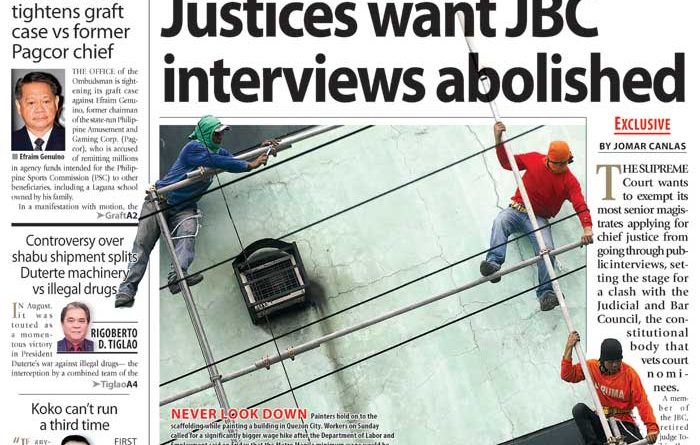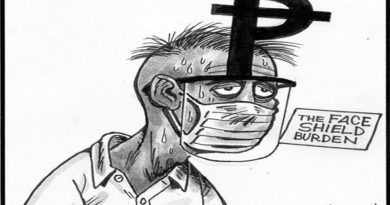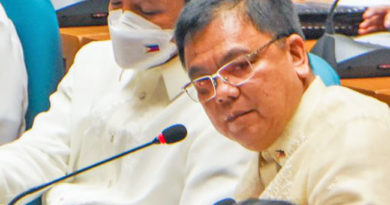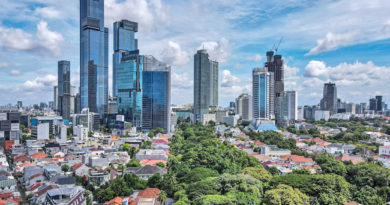ASEANews Headlines: Justices want JBC interviews abolished
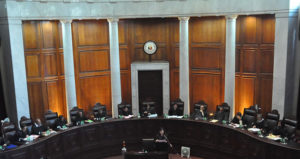 THE SUPREME Court
THE SUPREME Court
THE SUPREME Court wants to exempt its most senior magistrates applying for chief justice from going through public interviews, setting the stage for a clash with the Judicial and Bar Council, the constitutional body that vets court nominees.
.
– SPACE RESERVE FOR YOUR ADVERTISEMENT –
.
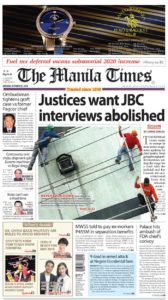
A member of the JBC, retired judge Toribio Ilao Jr., has strongly objected to the move of the court en banc, invoking the council’s independence.
In a 10-page comment dated October 15, 2018, a copy of which was obtained by The Manila Times, Ilao pointed out that while the high tribunal exercises supervision over the JBC, it has the duty to ensure that the rules of the JBC are complied with.
– SPACE RESERVE FOR YOUR ADVERTISEMENT –
.
The comment was addressed to the JBC ex-officio chairman, Senior Associate Justice Antonio Carpio, and ex-officio members Justice Secretary Menardo Guevarra and Sen. Richard Gordon.
It was addressed to the JBC executive committee chairman and regular member, retired justice Jose Catral Mendoza, and regular member Milagros Fernan-Cayosa.
.
– SPACE RESERVE FOR YOUR ADVERTISEMENT –
.
Internal resolution
The court urged the JBC to do away with the interviews of the most senior justices after the retirement of Chief Justice Teresita Leonardo-de Castro. This was contained in an internal resolution of the court en banc, dated September 4, 2018.
The Manila Times also learned from court sources that it was Associate Justice Marvic Leonen who penned the resolution of the en banc, which was approved unanimously.
The court pointed out that the justices’ philosophy could be determined through their ponencias or rulings.
Ilao, however, blocked the move, arguing that the internal rules of the JBC were clear that the interviews must be made “public” and without exceptions.
If the courts insists on abolishing the public interviews just to cater to the wishes of some justices, the JBC would be paralyzed and deprived of constitutional independence, he argued.
“To remove the interviews from the vetting process of the JBC would, therefore be tantamount to paralyzing the JBC and disabling it from faithfully performing its constitutional mandate. The JBC would be regressing to the olden times when the members had limited knowledge and interaction with applicants, assessing only what could be seen on the surface when the circumstances, on the contrary, compel the JBC to dig further and deeper,” Ilao stated.
He stressed that if the interviews were required of court employees, judges and justices, it should also be required of applicants for chief justice.
“While the JBC has already interviewed the incumbent Honorable Justices of the Supreme Court when they applied as Associate Justices, it is duty bound to ensure that applicants are in continuous compliance with the strict requirements they themselves impose upon lawyers and lower court judges.”
Ilao also argued that public interviews make the proceedings more transparent and “have also become the avenue by which the applicants are given the opportunity to address issues and controversies hurled against them, explain themselves to the council and the public and probe their worthiness to their watchful eye.”
Ilao, a retired judge of Taguig City and ex-classmate of President Rodrigo Duterte, cautioned his fellow JBC members that changes or revisions to the JBC rules were necessary before abolishing public interviews.
“Any changes in the conduct of interviews or the abolition thereof in the JBC process should undergo the correct process. If, despite the foregoing, the majority wishes to proceed with adopting the resolution, the undersigned wishes to stress that the JBC rules should first be carefully studied in consonance with prevailing law and jurisprudence, and taken together with recent circumstances; revised and approved in such a way that is agreeable to each member; signed by the council en banc; and published in newspapers of general circulation before it is made effective,” Ilao pointed out.
Corona and Sereno
He also noted that the JBC’s job became more difficult with the removal of the two previous chief justices, Renato Corona and Maria Lourdes Sereno.
Thus the JBC must be “firmer in the strict implementation of its rules, and, in revising its rules to affect the application process, do so with extreme caution, logic and discernment.”
The court’s five most senior justices are Associate Justices Carpio, Diosdado Peralta, Lucas Bersamin, Mariano del Castillo and Estela Perlas-Bernabe.
They were automatically nominated by the council and were required to submit a letter of conforme/acceptance and comply with all requirements, including the submission of at least their latest 10 sworn statements of assets, liabilities and net worth (SALN).
Del Castillo declined the nomination, making him the acting chairman of the JBC and not Carpio who accepted his nomination.
Associate Justice Andres Reyes Jr. has also applied again for the post.
Reyes, Peralta and Bersamin will no longer be interviewed because their previous interviews are valid for one year after their last application for the position of chief justice.
In that round of nominations, which was triggered by the removal of Sereno as chief justice in May for her failure to file the required number of SALN, the post went to de Castro, who served a brief tenure of 44 days before reaching retirement age early this month.
ASEAN NEWS STAND FRONT PAGES:
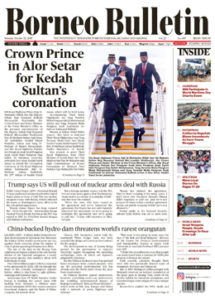






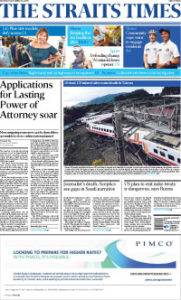


All photographs, news, editorials, opinions, information, data, others have been taken from the Internet..aseanews.net | [email protected] / For comments, Email to : Aseanews.net

